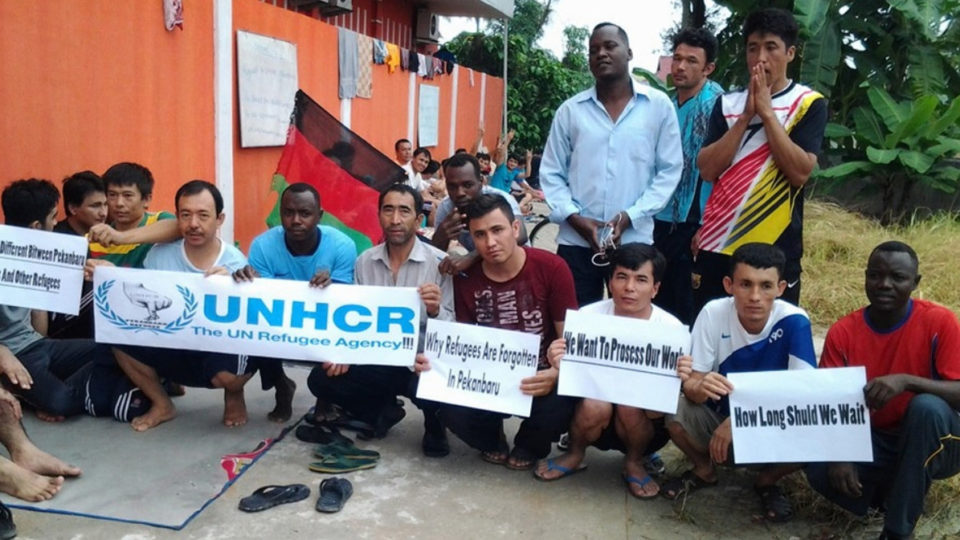Many stories have been written about the incredibly difficult circumstances facing refugees who get stuck in Indonesia (generally while trying to get to a third country where they were hoping to find safety and employment, like Australia). Indonesia does not recognize refugees’ right to work or to get an education, so most are stuck here in a kind of limbo while hoping to win a semi-mythical UNHCR resettlement slot in Europe, Australia or America.
But most refugees in Indonesia, who often come from countries torn by strife such as Afghanistan and Myanmar, still choose to stay in this purgatory rather than face their hopeless situation back home.
Most, but not all. Like other nations that are dealing with refugees, Indonesia has a program to send them back to their countries of origin. According to the Indonesian government, an Afghan-national refugee named Basit Ali Sarwari — who is currently staying in Pekanbaru, the capital of Riau — decided to use it to voluntarily return to his homeland last night.
The head of Pekanbaru Immigration Detention Housing (Rudenim), Junior Sigalingging, said Basit could go home using the AVRR (Assisted Voluntary Return Reintegration) program. The program aims to repatriate refugees voluntarily and is facilitated by the IOM (International Organization for Migration) in collaboration with the Directorate General of Immigration at the UNHCR.
“The refugees can return to their home countries and be given pocket money to start a new life,” Sigalingging said as quoted by Antara today.
Previously, Basit was a refugee and lived in the Wisma D’Cops shelter in Pekanbaru, which was under the supervision of the Pekanbaru Rudenim. Basit has been approved by IOM to participate in the AVRR program and by the Afghan Embassy in Indonesia.
Basit departed from Pekanbaru to Jakarta yesterday afternoon and just after midnight left on an Emirates flight back to Afghanistan via Karachi.
According to UN data, Indonesia is home to about 14,000 refugees. Not so long ago, UNHCR promised resettlement times of 2-3 years, but in the intervening time the number of refugees has increased while many of those countries willing to take them in are being pressured to close their doors, leading the UN agency to tell refugees that they may have to wait in Indonesia indefinitely to have any hope of resettlement.
Given that stark reality, and the incredibly bleak futures they face in Indonesia without hope for work or education, many refugee groups have come together to form their own tight-knit communities and volunteer-led learning centers to try and improve their lives and those of their children.




